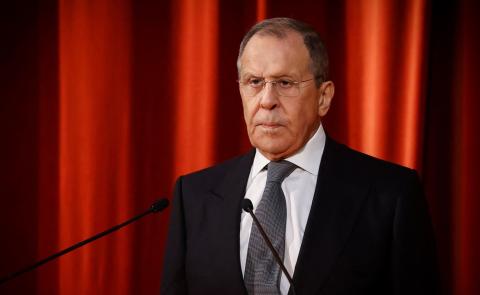
One of soccer’s biggest cliches is that it is a “game of two halves.” This sporting platitude also provides a good characterization of the first year of Joe Biden’s presidency.
Biden had a significantly stronger-than-expected first half of the year, fueled in part by wide-ranging relief that Donald Trump had finally left office after the Capitol Hill riot debacle. However, this early belle epoque was followed by the chaotic withdrawal from Afghanistan, which punctured the aura of competence and stability that Biden had cultivated on the 2020 campaign trail and in his first few months in office.
While many in the US were lukewarm, or opposed to, the country’s continued commitment to Afghanistan, key mistakes were made in the botched withdrawal that have led to searching questions being asked about US military power. While claims made at the time about the end of the “American era” of leadership were off the mark, US soft power and moral credibility have taken a hit with allies from Asia-Pacific to the Americas. This is troublesome for Biden as he seeks to rebuild the country’s global reputation after the travails of the Trump era.
In the period since the summer, Biden’s various challenges have sometimes obscured the fact that he had such significant political momentum from January to June, with a laser-like focus on domestic policy. This included progress with a huge $1.9 trillion stimulus bill, plus early successes combating the pandemic, which drew favorable comparisons with the dynamic early presidencies of Franklin Roosevelt and Lyndon Johnson.
At the time, Biden made the correct call that he needed his overwhelming priority to be domestic policy in 2021 and 2022, as the window of opportunity to secure his agenda at home may only last until November this year. This is because the likelihood is growing that he could face hostile Republican majorities from 2023 in both the Senate and the House of Representatives, should the Democrats lose a significant number of seats in the upcoming midterm elections.
In the House, there have been only three midterm elections since 1900 — those in 1934, 1998 and 2002 — in which the incumbent president’s party didn’t lose seats. In the postwar era, there has been an average net loss of 26 House seats, and losses were particularly striking for the last two Democratic presidents: Bill Clinton in 1994 and Barack Obama in 2010.
While Biden was always likely to face tough 2022 elections, this scenario has been made even harder by the puncturing of his presidency since last summer and the US withdrawal from Afghanistan. Prior to August, the date of the final US troop withdrawal, Biden’s approval rating had exceeded his disapproval, but since then the situation has been reversed.
Today, Biden’s disapproval rating is often at least 10 percentage points higher than his approval rate, driven by a heady political and economic cocktail of rising inflation and reemerging concern over the pandemic. One poll for CBS News and YouGov last Sunday, for instance, highlighted that nearly two-thirds of Americans believe the US is “doing badly” on managing the pandemic, with only 36 percent of respondents believing the government’s efforts are “going well.”
While Biden’s presidency is therefore in trouble, he cannot be counted out for reelection if he chooses to run again, especially if the economy grows significantly in 2022, 2023 and 2024 and inflation falls back. That possibility is exemplified by the presidencies of Clinton and Obama, which were rejuvenated in the second half of their first terms.
The US president has a deep interest in foreign affairs and wants this to be a key part of his legacy.
Andrew Hammond
Looking ahead, Biden is likely to focus more on foreign policy. To be sure, he does have other domestic ambitions, including his “Build Back Better” bill. However, his goal of bringing greater reconciliation to the US body politic after the polarization of Trump’s presidency may be too big a stretch.
Biden is therefore set to increasingly turn to foreign policy — and this could happen sooner rather than later depending on what happens in Ukraine. Not only does Biden have a packed international agenda, he also has a deep interest in foreign affairs and wants this to be a key part of his legacy.
The president is far from alone among US presidents in wanting foreign initiatives to be a critical part of his legacy. For instance, Richard Nixon scored a string of international successes in his second two years of office, including his landmark trip to China in February 1972.
Taken together, this is why Biden is increasingly likely to turn to the world stage as his presidency advances. Not only is the steam likely to be lost from his domestic agenda, but there are also significant potential foreign prizes on the horizon that could yet be part of a successful reelection bid.
Andrew Hammond is an Associate at LSE IDEAS at the London School of Economics.
Disclaimer: Views expressed by writers in this section are their own and do not necessarily reflect Arab News" point-of-view












